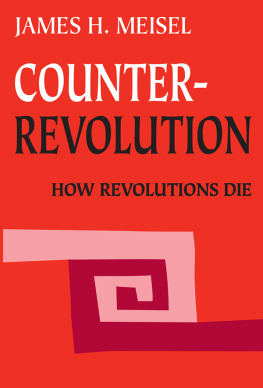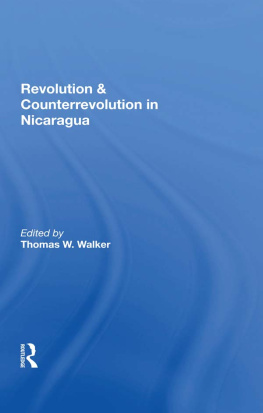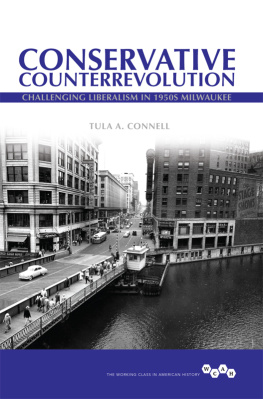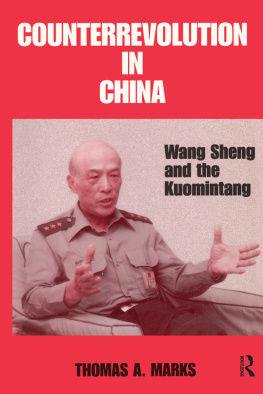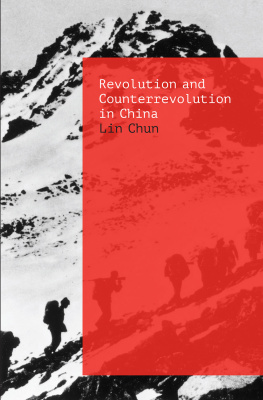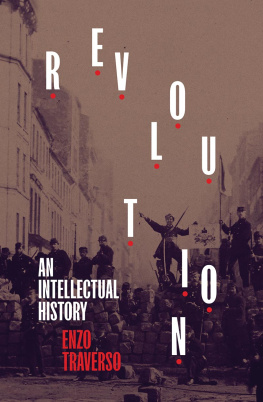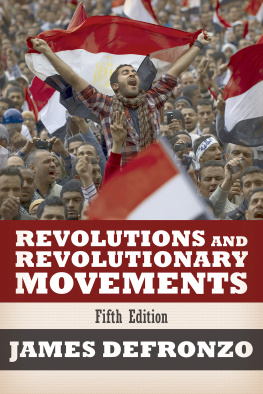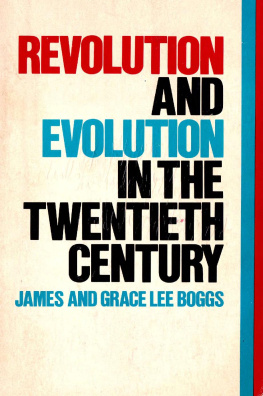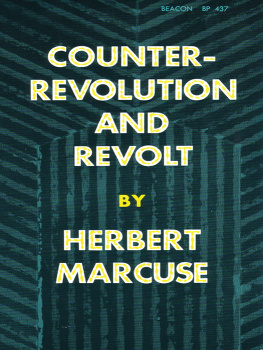SOME PERSONAL RECOLLECTIONS
Dont go near the windows, understand?
Why?
Because theyre shooting in the street.
Whos shooting?
Bad people. They stopped Grampas droshki and made him get out and walk.
But Grampas old! How could they do that?
Ah! They said, This is a revolution, mister! So you foot it now, just like the rest of usi
What is a revolution, Gramma?
The place: Riga, a city in one of the Baltic provinces of Czarist Russia; the time: 190$. I was then five years old. There was also that bad business of the gun, the black revolver, which my uncle refused to surrender to his parents. Uncle wore a uniform, the black, belted uniform worn by all Russian students. He said he needed the revolver to shoot gardavois, the Czars policemen. Like all other students, Uncle was a revolutionary. In the end, he did surrender the revolver, but he was quite angry with his parents. Youre such a liberal, he told his father, and you hate the Czar. But when they stop your fancy droshki, you complain. Pa, you dont know which side youre on!
What a way to talk to your own father!
Twelve years later, then aged seventeen and living with my parents in Berlin, Germany, l heard that there had been a new Russian revolution, and that there was much rejoicing in the streets, because this time the people had won. Whenever strangers met, they would stop and embrace, just as on Easter Sunday they exchanged kisses and the information that Christ had risen.
That was in the spring of 1917, and then for many months the news remained confused, until November, when there was apparently another revolution. Its leader, who took over all of Holy Russia, was a certain Lenin-Trotsky. At least, that was the name by which he remained known for quite a while.
This time, Grandpa did not walk. He ran until he reached the frontier and finally Berlin. Grandfather told us that he had to leave home because of Lenin-Trotsky. It transpired that Lenin-Trotsky was actually two men, and that between them they were turning everything upside down. Their followers had robbed my grandparents of their fur coats and most of their jewels (a few they had overlooked, thank God!)
Following the old people, their children and grandchildren, my cousins, also came to Germany. All except the uncle who had been so troublesome about the gun. He did not think Germany far enough, so he made straight for Belgrade, Serbia. It was a pity, because at the start the revolution had been such a romp, with Lenin and Trotsky making speeches all over town, as was reported by a cousin from St. Petersburgor rather Petrograd as it was now called.
Did you see them? Hear them speak? I asked.
A dozen times. As soon as we heard that Lenin was going to speak in an hour at such and such a place, wed jump a streetcar and
Whats he like?
Lenin? A terrible bore. He goes on repeating the same thing so long that in the end you think he must be right. And when you go home, damn it, he just stays with your
And Trotsky?
Ah, hes different. The greatest orator you ever heard. D ant on, St. fust, they must have been like that. Casting a spell. Hes witty too. You never tire of listening to him.
What did he say?
Oh, that I dont remember. Does it matter?
He had told them that they would be swept into the garbage pail of history.
One year later, again on a November day, a college freshman now, I cut classes because there had been a rumor that the German navy had raised the red flag in Kiel and that today the revolution would come to Berlin. So I took a streetcar to where all the big events took place, Unter den Linden, the broad avenue between the Kaisers palace and the Brandenburg gate. In front of a certain building, many officers were waiting for the loyal army units to arrive. They never came, and so the officers went home and changed into civilian dress. Presently the workers arrived, marching from their suburbs, many of them still in uniform, and many of them still mere boys. Some of the boys were carrying machine guns on their backs. They marched around in two distinctly separate columns, shouting angry slogans at each other. Only afterwards I understood that I had seen the breakup of the Second International; the confrontation between the two wings of socialism.
I also found out later that the revolution had officially begun ten minutes after I had left the scene to return home for dinner (my father was a stickler for punctuality). Ten minutes after I had climbed a streetcar, Philipp Scheidemann, the leader of the right-wing Social Democrats, from the balcony of the Imperial palace had solemnly proclaimed the new Republic.
Ten years later, a newspaperman now, I finally caught up with Philipp Scheidemann. The place was a large restaurant frequented by journalists at flight. They were chatting. Suddenly someone lowered his voice and said:
Dont look now, but behind us the Man with the Withered Hand is just raising it to drink his beer
I looked around and recognized the aging socialist, no longer in office.
I dont see it, l said. Wheres the withered hand?
Dont you remember? When they made peace at Versailles back in 19, the man swore, My hand shall wither ere I sign this document of shame!
Well, did he sign it?
No, he didnt. But the name stuck just the same.
Without realizing it, I had received an example of the indestructibility of myth.
Then came the days when brown-shirted men, young and old, went marching through the streets in serried ranks, singing raucously. At night, they filled the beer halls to cheer their leaders. The reporters dutifully covered the major meetings: it was a chore like any other. But to cover a Hitler rally with the Fuehrer himself speaking was a plum for which young journalists would fight; this assignment might make their career.

